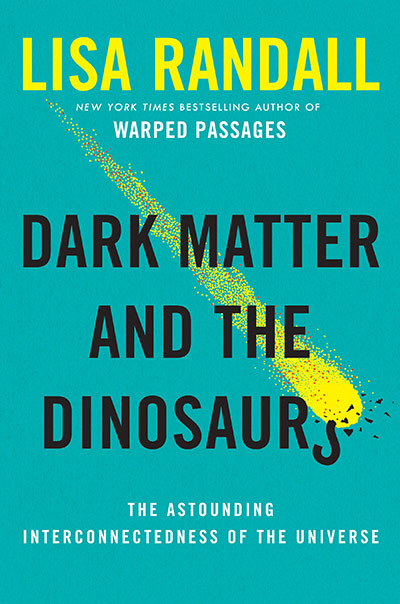
There is a certain joy to finishing a book that you’ve been trying to work your way through for five years. For me, that joy most recently came from getting to the far side of Lisa Randall’s “Dark Matter and the Dinosaurs.”
While it’s not fair to say that it took me five years to read the book because it’s so dense — I had plenty of other projects to do, commitments to honor, and books to read in addition to educating myself on the basics of particle physics and mass extinctions — it is fair to say that sections of the book get very dense.
Maybe it’s par for the course when reading a book about something as mysterious to the average layperson as dark matter is, but the sections that focused most strongly on particle physics and astrophysics often felt like they cared more about the plain science than the action of communicating the facts to the reader. This is a flaw in a book designed for consumption by the average reader rather than a scientist.
I also find myself wondering about the premise of the book. Focused on the same information and research that build up to Randall’s 2014 paper “Dark Matter as a Trigger for Periodic Comet Impacts”, the book sets the reader up to understand her proposition that a disk of dark matter that is overlaid on the disk of the Milky Way regularly pulls comets from distant reaches of the Solar System out of their normal paths in a way that they’re more likely to hit Earth. She further proposes that the comet that killed the dinosaur was one such impacted celestial body.
Of the 370 pages, devoted to these topics, only 20 explain the actual research and theory she’s proposing. The bulk of the book is the required set up, and while the theory serves as the linchpin that lets information about the physics behind dark matter coexist in a bound set of pages with information on the mass extinctions that have faced life on Earth, I feel like I got more out of everything else than the actual theory at the end.
But at the end of the day, I don’t regret any of the time I put into it, chunks of the book I especially enjoyed, and I came out on the far side with knowledge I didn’t have before. I suppose that makes it all worthwhile.
